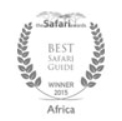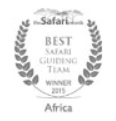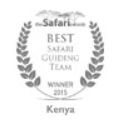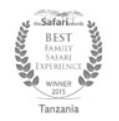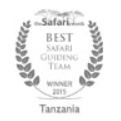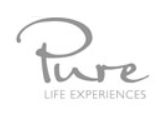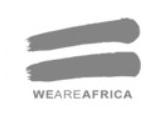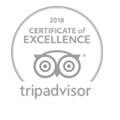The very foundation of Alex Walker’s Serian is constituted by a deep respect for the beautiful wilds of Kenya and Tanzania, as well as its people and cultures. The preservation of these precious spaces lies at the heart of our ethos and practice, and this manifests itself in a number of ways.
Mara Predator Project: http://livingwithlions.org/
We helped initiate the Mara Predator Project, and our Serian camp provided its base for 3 years. Concerned with dwindling lion populations, the project seeks to find ways to protect remaining lion populations across Africa.
Our private conservation areas
Ngare Serian and our Tree House are set in 1,500 acres of private, exclusive conservation area, bordering the Mara North Conservancy. This crucial zone is a dispersal area between the Mara River and the Siria Escarpment, and was once heavily poached and over-grazed. By taking it under our protection, we have seen a significant recovery in both the environment and the populations of game.
We employ 6 rangers to patrol and keep poaching at bay, and in fact during the first year of our leasing the land, we encountered almost no game, and most of the rangers’ activity was concerned with picking up snares. Their patrol encompasses 2,500 acres of the Pusinkariak area: a zone that now supports a pride of around 20 lion, 3 leopards, 50 buffalo, and encompasses 4km of river frontage, forming the dispersal area for roughly 400 hippo. By taking this land under our protection, its landowners are benefiting financially from our conservation efforts, and we have created a car-free cattle-free zone – a safe, tranquil haven that naturally attracts increasing wildlife populations.
In Serengeti South, we are taking on an equivalent area: Makau, a village bordering the Ngorongoro Conservation Area, has allocated pieces of its land – called ‘Shamba ya Vijana’ – to its youngsters for them to use as a means of generating a living – one of which has been offered to us to rent. A project like this has a number of benefits: conservation becomes an income-generator for young people in the village (of whom we employ quite a few), we can offer our clients an exclusive zone for fly-camping, walking, and game-driving, and our protection of the area will provide a safe zone for game to come into.
Cinnabar Green: http://cinnabargreen.com/
All our camps use Cinnabar Green products, which are eco-friendly and use locally sourced ingredients. As an added benefit, the company supports some great community initiatives.
Waste & recycling
In Kenya we recycle all of our glass: some gets sent to Nairobi to be given new life as beautiful glassware pieces by Kitengela (provide link), which we use in camp. Other glass gets incorporated into our veggie patches and building structures, and we’ve also replaced all plastic drinking water bottles with old wine bottles, decorated with beaded detail by local Masai women.
MNC has initiated a waste management project (provide link), which provides incentives for the local community to collect litter and hand it over to them to dispose of. Camps are also encouraged to participate in the project.
Compost
All of our organic waste from our Kenyan camps goes into a compost pit, which in turn nurtures our 100% organic veggie patch, supplemented by cow manure from local Masai bomas. What we can’t grow ourselves, we try to source from as close to home as possible: all fruit and veg is 100% Kenyan produce, as well as many other elements of our menu.
Water
In Kenya our water comes from the Mara River that flows through camp, and also from a nearby spring. As it is a rain-rich area, we collect rainwater for use in the kitchen. All of our waste water goes into a cesspit and is broken down organically, helped by EM-1 – a biological waste disposer.
Solar
All of our permanent camps rely mostly on solar systems for electricity, both in the tents and the main areas. This necessarily means we can’t use non-eco-friendly appliances such as air-conditioning units, washing machines, and microwaves: all laundry is done by hand, and ironed with a charcoal iron, and most of our food is cooked in a traditional charcoal oven using locally sourced eco-friendly charcoal made by the local communities.
Wood
Our shower water in our Kenyan camps is heated by wood-burners, and the wood we use for this purpose is sustainably harvested from specially designated forests. This means we don’t use any of the Mara’s wood – and in fact, we have set up our own tree nursery, planting indigenous trees along the riverbank to prevent it from being eroded when the river is in full flood.
Walking
An integral part of our ethos in all our camps is to encourage guests as much as possible to explore the environment through walking safaris. Not only is this a zero-impact way of accessing the game, but it puts people more in touch with the environment on a macro level, and also engenders intimacy with the local people who are resident to the area, as they guide them through the wilderness they call home.

 How we have adapted to COVID-19 & other safari travel requirements you need to know.
How we have adapted to COVID-19 & other safari travel requirements you need to know.





